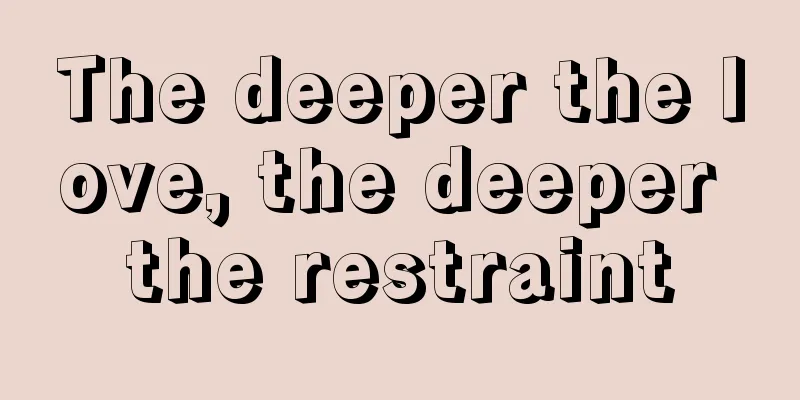How should women say goodbye to the painful past

|
We always hear the painful complaints of people around us, "Why can't I forget those things in the past?", "I know this is not good, but I just can't forget it." Some people feel that life is painful because those memories that they want to forget but can’t keep appearing, making people trapped in the painful memories and unable to extricate themselves.
Why do we always want to forget but can't? Time is a funny thing. It can turn ordinary old things into beautiful memories and also make us remember the pain of the past for a long time. Some people say that if you are busier, some things will be quietly forgotten. But what should we do when we have free time? On an afternoon when the rainstorm just stopped, looking out the wet window, past scenes began to emerge one by one. In fact, we all know that: no matter how hard we try to forget something, we often cannot forget it, and may even get deeper and deeper into it. Keith Payne, a psychologist at the University of North Carolina, and his colleagues have found an answer from a physiological perspective: emotional memories are the most difficult to deliberately forget, especially when they come from visual cues. This emotional memory enables people to firmly remember the emotions they experience, especially those things that are emotionally charged and have aroused their emotions. The prerequisite for people to deliberately forget something is to completely isolate themselves mentally from all the information related to the event. However, people's emotional memories are formed in connection with many parts of their lives, so it is difficult to isolate them. Once people want to suppress or deliberately forget something, they will inevitably have to face it repeatedly, and then have to chew on these negative things repeatedly, causing negative memories to accumulate more and more in their consciousness. When rationality can't "convince" you, it's better to calm your mind! We cannot isolate people and things from the past, and deliberate forgetting will only awaken past emotions, which will only deepen our memories. So we start to cognitively convince ourselves to be happy: Have many people ever said to you, "He doesn't deserve you, why should you be so sad?", "Since the facts are like this, why not make yourself happier?", have you also said to yourself, "Time can dilute everything?", "In fact, many people are more unfortunate than me, I should be content"... We all know rationally that we should forget the pain and live happily, but in the face of pain, everything seems so pale and powerless. At this time, don’t try to rationally convince yourself to be happy, but calm down from the negative emotions. Method 1: Mobilize your happy emotional memory Research shows that people can crowd out painful negative memories by recalling positive ones. Many times it is very difficult for people to forget their past pain, but the pain can be alleviated by mobilizing people's happy emotional memories. In a relaxed and happy environment, mobilize your past happy memories, let those wonderful feelings fill your heart and calm your heart. On the other hand, "Think good things and good things will come; think bad things and bad things will knock on your door." Learn to think about problems with a positive mindset. When you change your view of things and other people, things and other people change for him. Method 2: Stop thinking rationally and just be aware When facing negative memories, the key is not how to forget or stop resistance, but whether you have a positive attitude of acceptance. Are you aware of your emotional state? Are you aware that those memories are causing you pain again? If you realize that you are currently in a state of recalling pain, then do not interfere with it, do not analyze it with your reason, do not explore the reasons, just watch it come and go freely in your mind, and finally disappear automatically. In this way, your heart, which is troubled by the past, will slowly calm down. It's healthier to be open to negativity than to block it out. Pay attention in a specific way, on purpose, in the present moment, without judgment. When you realize that your emotions are starting to take a negative turn, you begin to watch it. Stay aware and awake during this process. When emotions arise, don't resist them. Let them arise and watch them. Don't analyze them rationally. This is a way to calm your mind. Only by calming ourselves down and letting the problem settle down and stop bothering us, can we have the space to calmly think about solutions to the problem. It is a kind of awareness, it is a skill that is not innate, so it needs to be learned and practiced. When one day you can easily laugh about the past, you have truly “forgotten” it. When our pain is caused by a broken heart, what should we do? Vent your emotions appropriately: Don't let the grief, frustration, and anger of a broken heart accumulate and eat away at your body and mind. This is what is called a gain and a loss: when God closes this door, he will open another door for you. The first one: vent your emotions appropriately: don’t let grief, frustration, and anger accumulate and gnaw at your body and mind. If you want to cry, listen to the sound of water in the bath and cry as much as you want. If you want to scream, find a place where there is no one and scream loudly. If you want to tear it, tear it hard behind closed doors. If you want to talk, find a close friend and have a good talk. But when venting, you must pay attention to the target. Don't just pick someone to be the unlucky one, lose your temper at him, and hurt innocent people. The second type: Pretend not to care: Although it is impossible to truly not care, your actions of saying and doing so will affect your heart. We can think like this: "He doesn't care anymore, so why should I care?" or "The best way to deal with an unfaithful person is to live a good life." or "You want to see me sad and in pain, so I won't let you get what you want." - These thoughts can help us avoid falling into the vortex of bad emotions. The third type: participate in activities, be with others, and talk about interesting topics: open your heart to dynamic activities with many people participating, such as parties, gatherings, outings, dances, watching performances, playing ball, etc., and try to join in other people's conversations, discover humorous and interesting topics, laugh with everyone, and your mood will become cheerful. The fourth type: Go away to travel: join a tour group or go to a foreign country or place with a group of friends to play or do research. The cultural customs of a foreign place will give you a refreshing feeling. As your horizons broaden and new feelings arise within you, old worries will shrink, fade away, and become less serious. Fifth type: Focus on work and study: It is easy to be distracted when in love, but now you can finally focus on work and studies. Turn grief into strength, work hard, and you will achieve unexpected results, and other honors will follow. This is what is called a gain and a loss: when God closes this door, he will open another door for you. |
<<: These actions of men made her want to break up
>>: Girls should be aware of the five psychological factors that lead to losing their virginity
Recommend
Lower abdominal pain one week after sex
Regular sex after marriage is beneficial to women...
What does it mean for a woman to have such an embarrassing sexual dream?
The definition of a sexual dream is talking about...
Japan's strange culture! Uncovering the secrets of why Japanese women are willing to be abused
Shibari (しばり), a Japanese rope bondage art, liter...
Women who have sex enough have a more beautiful part
During sex, a woman's breasts are like a pass...
Can kissing spread AIDS?
Most people become very scared when talking about...
What should I do if I have sex without knowing I’m pregnant?
As society develops, the age at which women becom...
The unspeakable "stewardess complex" in men's hearts
It seems that every man has a "stewardess co...
Women who bring prosperity to their husbands usually have three characteristics
People often say that behind every successful man...
What to do if women have low libido?
Sex is mysterious and beautiful. Generally speaki...
Gender topic: Dealing with your relationship with your husband
Many working women envy housewives, thinking that...
Female Condom
If people do not want to get pregnant during sex,...
Women do these 6 things that will kill men
The most touching moment for a woman to move a ma...
The romantic encounters that men may experience
Every man longs to have a wonderful romantic enco...
5 Secrets of Married Women
Marriage is the grave of love, so why do we say t...
What kind of women do men like to have sex with?
A few days ago, I had dinner with a few close fri...









